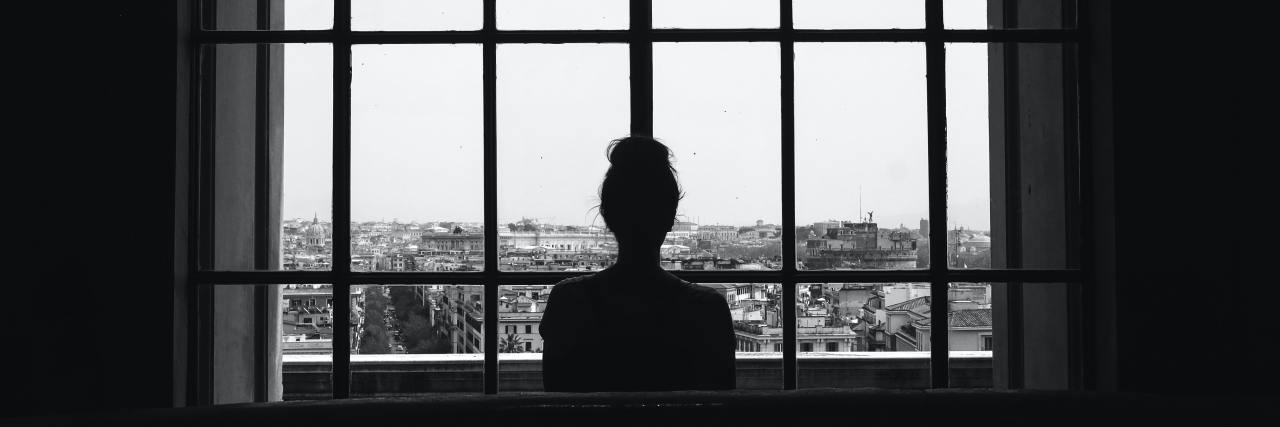Why the Coronavirus Isolation Feels the Same as My Childhood Abuse
Editor's Note
If you’ve experienced domestic violence or emotional abuse, the following post could be potentially triggering. You can contact the Crisis Text Line by texting “START” to 741741, The National Domestic Violence Hotline online by selecting “chat now” or calling 1-800-799-7233.
Time is hard to track in quarantine due to the coronavirus (COVID-19), the new strain in the coronavirus family that affects the lungs and respiratory system. The news is the same. Sleep is the same. The late-night infomercials are the same. Is it day six or 16? What is the present, and what is the past? With every passing day, it gets harder to tell if I am a 26-year-old isolated due to a viral outbreak, or if I am 10 again, trapped at home because my father demands it.
They both feel the same.
Growing up, my father was controlling — the kind of parent who locked our food away and wouldn’t let us cough if we were sick. He dominated every action, commanded every choice. Not only did he never let us out, he also never let anyone in. This made every break from school agonizing; when that final bell signaled summer vacation, my life ground to a halt. I was in for months of hunger, hard chores and forced exercise. And despite what I was going through, the world kept spinning without me. Kids called each other on the phone. They went to the pool. They had sleepovers and barbecues and movie nights. And while they enjoyed their childhood, I counted down the days until my life resumed, acutely aware of how much I was missing.
At least, this time, I’m not missing out alone.
“You must stay home. You cannot see anyone you do not live with. Only leave when necessary, such as for exercise…”
The governor’s orders don’t sound so different from those my father used to bark at me. I watch the news conference and each word sends me back.
I try to remind myself that I am a grown woman now, that my life is nearly unrecognizable. Where I once had a restricted landline, I now have my own cell phone. Where I once was alienated, I now have video chats with friends. Where I once starved, I now have the ability to control what I get at the grocery store. It’s a different time, now. But with the recent outbreak of COVID-19, things don’t feel so different anymore. The line between past and present is blurring.
The tricky thing about trauma is it doesn’t respect a timeline. What happened years ago can feel like yesterday. It’s hard to remember my father is long gone when I can practically feel him stalking back and forth in the other room. With this forced isolation, it’s hard to remember I am not a victim anymore.
The toll of COVID-19 goes beyond health scares, limited supplies and depressing news. It’s the way people are forced to live with their abusers, or the ghost of them. It’s the way someone can feel so privileged, but also acutely deprived. It’s the way we all call each other for connection but have nothing new to say. And for people like myself who struggle with mental illness, this virus has drastically changed the landscape of our recovery. Self-care strategies like support groups, volunteering and going to church are impossible now. Access to providers is limited to phones if it’s available at all. Refilling necessary prescriptions is now a terrifying foray into a dangerous world. And the anxiety around finances and when things will go back to “normal” is ever-present.
I never expected to feel so lost in time. When I first heard the word “pandemic,” I anticipated worrying about staying healthy and the state of the economy, not trauma flashbacks and relapses. I have to fight to remember I am no longer that little girl when most days I feel just as powerless. I couldn’t stop my father then, and I can’t stop the virus now. I also can’t stop the memories, which come and go with more freedom than I have during this lockdown. As much as I tell myself my life has changed, I’m once again stuck at home, wishing I could experience life beyond my front door. With each day of the quarantine, my 10-year-old self is clawing her way into the present, reminding me that not so long ago I had no control over the terrible things that happened to me. And that it doesn’t take much to turn the life I’ve built to rubble.
But I do what my therapist taught me and stop the thoughts before they spiral. I breathe deeply. I remind myself I have spent years conquering my trauma and bettering my life. My home is now a peaceful place, one that I don’t mind hunkering down in. I have three very funny dogs who didn’t exist back then anchoring me to the present. And most importantly, I remind myself that sooner or later, this will end. Nothing lasts forever: not childhood abuse, not a shelter-in-place order. Because although trauma doesn’t respect a timeline, time moves forward nonetheless and will carry me with it.
Struggling with anxiety due to COVID-19? Check out the following articles from our community:
- Feeling Calm in the Midst of the Coronavirus Pandemic Might Be a Trauma Response
- 6 Tips If You’re Anxious About Being Unable to Go to Therapy Because of COVID-19
- How Can You Tell the Difference Between Anxiety and COVID-19 Symptoms?
- 7 Things to Do If Social Distancing Is Triggering Your Depression
- What to Do If the Coronavirus Health Guidelines Are Triggering Your Anxiety or OCD
Photo by Cristina Gottardi on Unsplash

